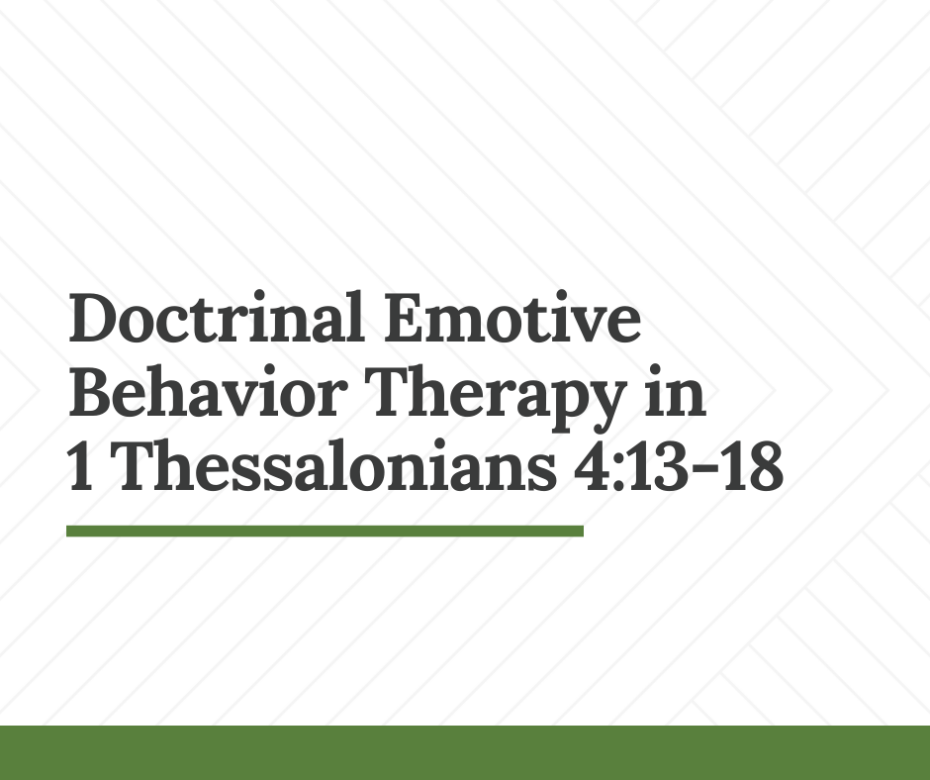On Sunday morning, I had “house church” with the kids. They liked it. We gathered together, sang a Psalm; Daphne read the Scripture (Luke 12:32-34), and we started discussing it.
The kids had been fighting over toys recently, so we discussed the reason why. Why do they find it so hard to share their toys? Why do they get so upset when someone else is playing with their toy? Was it because their hearts were bound up with their toys on earth, instead of thinking about pleasing Jesus and getting treasure in heaven?
During the discussion about heaven, I mentioned their grandfather was dying and we would probably go to his funeral soon. (In fact, I later found out he had died the night before.) And Zane—who often has very thoughtful questions for a five-year-old—asked, “Is it true that after he dies, Grandpa Whistler will, like, come back up, and walk around in his body, in real life?”
So we talked about the resurrection and about how, when a believer dies, his spirit goes to be with the Lord (2 Cor 5:8), while his body goes into a grave. I explained that while we will soon bury Grandpa Whistler’s body in a grave, because he was a believer, his spirit will go to Jesus. And when Jesus comes back, Grandpa’s spirit will be reunited with a new, resurrected body.
When Zane heard that, he asked, “And then he can walk around with us again, in real life?”
“Yes,” I said. “Everyone who believes in Jesus will get that in real life.”
My kids needed to understand that. So did the Thessalonians. They struggled with death and resurrection, and Paul’s exhortation to them is another example of what I call Doctrinal Emotive Behavior Therapy (see here).
But I do not want you to be ignorant, brethren, concerning those who have fallen asleep, lest you sorrow as others who have no hope. For if we believe that Jesus died and rose again, even so God will bring with Him those who sleep in Jesus. For this we say to you by the word of the Lord, that we who are alive and remain until the coming of the Lord will by no means precede those who are asleep. For the Lord Himself will descend from heaven with a shout, with the voice of an archangel, and with the trumpet of God. And the dead in Christ will rise first. Then we who are alive and remain shall be caught up together with them in the clouds to meet the Lord in the air. And thus we shall always be with the Lord. Therefore comfort one another with these words (1 Thess 4:13-18).
Does the ABCDE method of therapy help make sense of this passage?
A. What is the activating event?
Simply put, death. That is, some of the believers in Thessaloniki had “fallen asleep,” i.e., had died (v 13a). These were friends and family and fellow members of the local church.
C. What is the emotional or behavioral consequence?
Understandably, the Thessalonians were in mourning. That’s completely healthy and natural, and there is nothing wrong with sorrowing over the death of a loved one. Even Jesus wept over Lazarus (John 11:35). But Paul was concerned they might mourn “as others who have no hope” (v 13b, emphasis added). That’s a different story. You can sorrow with hope, or you can sorrow without hope.
B. What did the Thessalonians believe about death to produce their emotional disturbance?
We don’t know exactly. They were evidently confused about the doctrine of resurrection and the Lord’s return. Apparently, they believed that if someone died before the coming of the Lord, he would miss out on something important.
D. How does Paul dispute their beliefs with doctrine?
Paul exhorts them by reminding them of one doctrine and by revealing another.
First, Paul reminds them of the Lord’s resurrection and what that implies for all believers:
For if we believe that Jesus died and rose again, even so God will bring with Him those who sleep in Jesus (v 14).
Jesus rose from the dead. Likewise, God will also raise believers from the dead.
Second, Paul taught the Thessalonians about the Rapture of the Body of Christ:
we who are alive and remain until the coming of the Lord will by no means precede those who are asleep. For the Lord Himself will descend from heaven with a shout, with the voice of an archangel, and with the trumpet of God. And the dead in Christ will rise first. Then we who are alive and remain shall be caught up together with them in the clouds to meet the Lord in the air. And thus we shall always be with the Lord (vv 15-17).
Those who die before the Lord comes in the Rapture will not lose out, “the dead in Christ will rise first.” And then all believers will be changed and will “meet the Lord in the air” so we can “always be with the Lord.”
E. What was the intended effect of this doctrinal disputation?
Paul thought the effect of this doctrinal teaching should be to comfort the mourners:
Therefore comfort one another with these words (v 18).
When a believer dies, you can sorrow, but don’t sorrow as those without hope—as those who have no assurance of what lies ahead. Instead, you should be comforted by the truth that death is not the end for the believer. One day, when the Lord comes for His Church, the dead in Christ will rise first, and we’ll be reunited both with each other and with the Lord.
This Friday, my kids will be saying goodbye to Grandpa Whistler. But they’ll see him again. For the Christian departed, saying “goodbye” really means “see you soon.”


